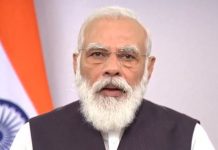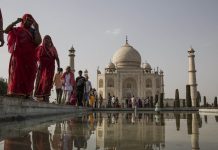
For the Modi-led central government, announcing assembly election in J-K wiil be a tightrope walk as it doesn’t want its decision to undo Article 370 to be in any way challenged by an Assembly dominated by the parties that have a contrary view on the issue, reports Riaz Wani
With Assembly elections in Himachal Pradesh and Gujarat over, there is hope that the centre might call Assembly polls in Jammu and Kashmir. But even as 2022 is approaching its end, there is no sign that J&K is any closer to holding an election. It is still not known whether polls will be held early next year or not.
J&K has not had an elected government since June 2018 when Governor’s rule was imposed after the PDP-led coalition government lost its majority following the withdrawal of support by the BJP. The last four years have witnessed a drastic political makeover of the state-turned-union territory, so much so that in many aspects, the current J&K bears little resemblance to what it was pre-August 2019.
Many observers in Kashmir are hoping that elections may be held by April-May. Things on this score, however, are likely to get clearer in the weeks to come. 2023 will be the last year when the polls could be held in the union territory as in 2024, the country is due to hold general elections.
Meanwhile, people in Kashmir are eagerly waiting for elections, as the exercise is expected to lead to restoration of statehood. No less than union home minister Amit Shah has made it clear that the statehood of J&K would be restored only after elections are held and a representative government is formed.
“It seems that the union government wants to first see how the future elected government would look like and what its political and governance priorities would be including its approach to the issue of the revocation of Article 370, before the UT is upgraded to a state,” said a Kashmir University professor not wishing to identify himself as he was not authorized to speak to media. “Also, it is as yet unclear if the centre would be inclined to restore complete statehood or a truncated one on the pattern of Delhi.”
There is an apprehension in Kashmir that after the abrogation of Article 370, the centre would be loath to let go of the control of security and also probably of the information, the two critical components of state apparatus in the conflict-ridden region.
One thing however is clear: the J&K statehood seems subordinate to the circumstances thrown up by a future elected UT government. The centre, as seems obvious, doesn’t want its decision to undo Article 370 to be in any way challenged by an Assembly dominated by the parties that have a contrary view on the issue.
“It is expected that a government led or influenced by the BJP could lead to statehood being restored in J-K than a non-BJP government,” read an editorial in a local daily. “But, for now, this is all in the future. All we can hope for now is that the elections are announced earlier than later, and April-May will be an ideal time considering it will be spring.”
As things stand, the situation appears conducive for Assembly elections. More so, after the BJP’s landslide win in Gujarat which has effectively put the saffron party on the road to a third successive triumph in the 2024 parliament election. This apparently gives the party confidence that it could continue to control the course of events in J&K.
So, should we expect the announcement of Assembly elections in the near future, now that the exercise of drawing up fresh electoral rolls has been completed?
“Jammu and Kashmir is primed for the Assembly election. But it remains to be seen whether the centre would actually go and call them,” said Naseer Ahmad, a columnist. “As of now, it is clear that New Delhi is a bit reluctant about holding polls in the union territory.”












